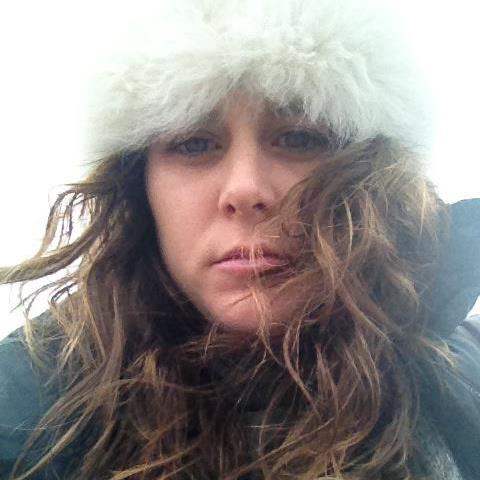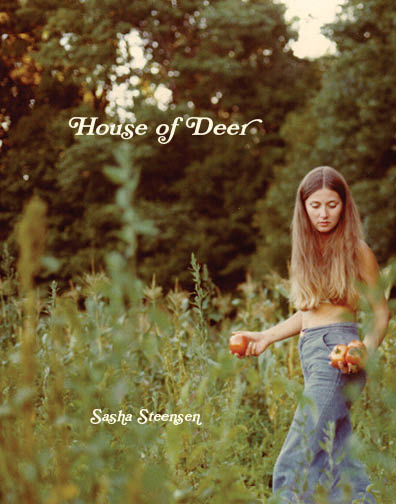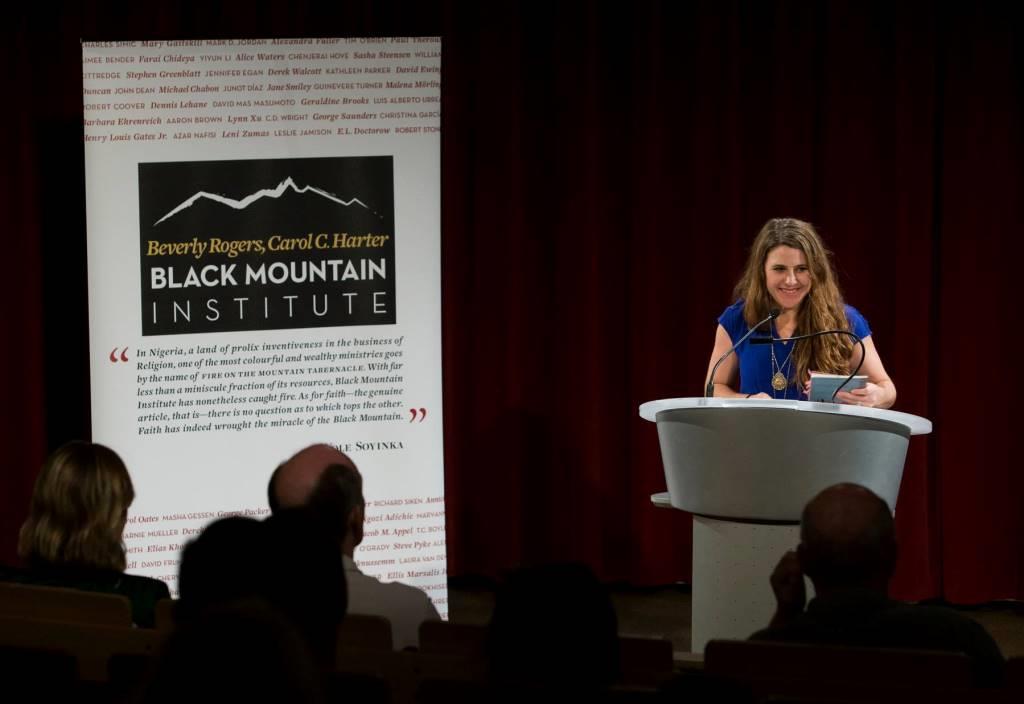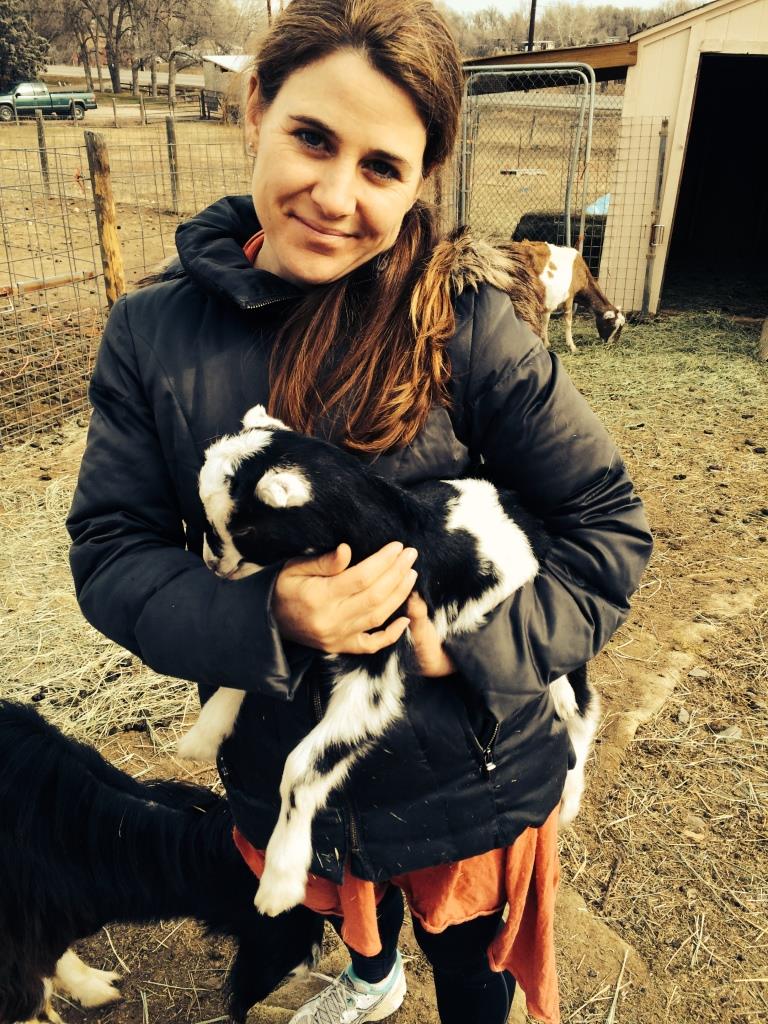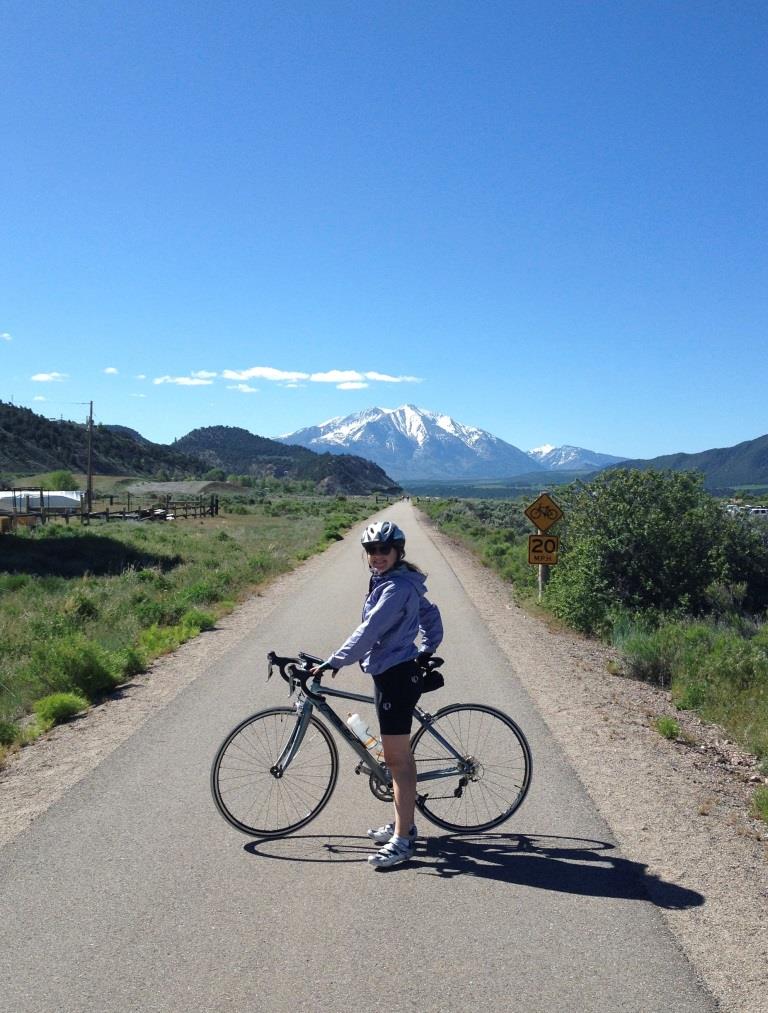Associate Professor Sasha Steensen teaches poetry workshops and literature courses. She is the author of House of Deer (Fence Books, 2014); The Method (Fence Books, 2008); A Magic Book, which won the Alberta duPont Bonsal Prize (Fence Books, 2004); Waters: A Lenten Poem (Free Poetry, 2012); A History of the Human Family (Flying Guillotine Press, 2010); The Future of an Illusion (Dos Press, 2008); and correspondence (with Gordon Hadfield, Handwritten Press, 2004). Her poetry has appeared in numerous journals, including Octopus, Omniverse, Jubilat, Denver Quarterly, and La Petit Zine. Her essays and reviews have appeared in journals such as The Volta, Boston Review, Chain, P-queue, and Interim. Steensen serves as one of the poetry editors for Colorado Review.
How would you describe your work in the English Department? Like most faculty members, my work is split between teaching, service, and research/writing. In addition to the committee work, classroom time, and writing time (something that tends to dwindle when I find myself on too many committees), I spend a good deal of time meeting with graduate students and attending poetry readings.
What brought you to CSU? The MFA program, of course! But also the weather and the mountains.
What do you enjoy most about your work? I am so lucky to have a job where I can talk to people — colleagues, students, fellow writers — about poetry. I cherish these conversations.
Why is poetry important? What does it mean to or do for you, all of us? Poetry upends expectations; it challenges us; it gives us our language back to us anew. We use language everyday. When we can see the tool we use nearly every waking moment of our lives with fresh eyes, we are empowered. Not only is poetry beautiful and inspiring, but it can help us to think critically about language. It can help us see the ways language — in advertisements, in politics, in our interactions with others — can be used to manipulate us. When we begin to see this, we can resist.
Who are some of your favorite poets, poems, lines? I will answer in terms of favorite poets: Emily Dickinson, Susan Howe, Wallace Stevens, John Berryman, Bernadette Mayer, Anne Carson, William Carlos Williams, H.D. There are many, but I find myself returning to these poets again and again.
What is your writing process, practice like? It depends a bit on what I am writing. If I am writing prose, it is usually slow and laborious. Poetry often, though not always, comes more easily. Regardless of what I am writing, I always have stacks of books around me while writing. Right now I have 99 books checked out from the CSU library because I am, thankfully, doing a good deal of writing at the moment. Still, I think it is time to return some of these books!
How would you describe the poetry you write? I suppose I would say it leans toward the experimental/avant-garde. It is generally sound-driven, but I like to think each project varies drastically from the next. Interestingly, I have also been told that despite the experimentation, my poetry is accessible. I suspect the accessibility has to do with the fact that I often write entire books of poems on one topic.
What fuels, feeds your poetry? Reading, first and foremost, and it need not be poetry. Any good writing will make me want to write a poem. Visual art is hugely influential for me, though I tend not to write directly about certain pieces all that often. I regularly do historical research while writing, and this research usually takes a predominate role in my poetry. Spiritual practice is helpful too — prayer, meditation, etc. Last but not least, daily life — my kids, domestic duties, routines, etc.
What sort of legacy would you like your poetry, your life to leave? I’m not sure I have ever thought about a “legacy,” per se. The first thing that comes to mind is that I want to be kind. I want to be a good mother, a good friend, a good teacher. That seems more important than any poem I could ever write.
Your latest book, House of Deer, uses a special picture for the cover. Tell us more about that. My mother is on the cover. I was about 2 years old when the photo was taken. She is in our garden in Ohio, where we were back-to-the-landers. The book is about that experiment, as well as the larger experiment of family, so it seemed fitting to feature her on the cover.
What special project are you working on right now? I am working on several projects. I’ve just finished an essay on the experience of familiarity, and I am at work on an essay on embarrassment. Eventually, I am hoping these essays on emotion might turn into a book, but that is probably a few years in the future. I am also working on a series of poems that I am tentatively calling “Hendes.” I’ve taken Catullus’s hendecasyllabic form and adapted it so that each poem is 11 lines with 11 syllables per line. Lastly, I am working on a prose poem that looks at the history of the settlement of Fort Collins and Laporte. It also interrupts itself with observations about daily life now — my daily life, with my children, working on the land where I live.
Why are the Humanities important? There’s much to say here, but I will keep it simple. The humanities teach us to think critically and creatively. They teach us how to be good citizens and compassionate members of society.
What inspired you to pursue a degree in English, the Humanities? Growing up, I was fascinated by history, and I loved both research and writing, so I completed an undergraduate degree in History. Pursuing graduate work in English was completely selfish on my part. I longed for more time to read and write. When I finished my MFA and went into a PhD program, I had no idea I would become a professor. I simply entered the PhD program at Buffalo to find a community of writers and thinkers and to give myself five years to write a dissertation. I also completed my first book of poems while pursuing my PhD (a critical PhD in American Poetry), so it was a relatively productive time for me.
What had the greatest influence on your career path? When I was finishing my BA in History, I applied to graduate programs in American Studies programs. I was admitted to several, and I was in the process of deciding which to attend. That same semester, I was enrolled in a poetry workshop with the poet Claudia Keelan. When I told Claudia I was in the process of deciding which program to attend, she said, “you must do an MFA!” I was baffled because, as much as I loved writing, I didn’t trust my ability. But she did, and I listened to her and enrolled in the MFA program she was in the process of starting at UNLV, and here I am!
What did you want to be when you were a kid? A pilot.
What moment in the classroom stands out as the most memorable? I often ask my Introduction to Poetry students to rate their interest/ love of poetry on a scale of 1-10. At the beginning of the semester, most students write down (anonymously) somewhere around 2-3. They often attribute their lack of enthusiasm to their inability to “get” poems. At the end of that semester, I ask again, and nearly all of the students write down 7, 8, 9 or even 10. I love this moment because my entire goal for that class is to offer students various ways into the poem, to teach them that a poem is not a puzzle to solved, but a piece of art to experience. When I see them starting to experience the poem as opposed to “solving” it, it thrills me.
What is your favorite thing to teach? Favorite thing about teaching? Obviously, I love teaching poetry — at all levels, from Introduction to Poetry to Graduate Poetry Workshops. But I also absolutely love teaching early American Literature — sermons, captivity narratives, political documents like the Federalist and Anti-federalist papers. I am enamored with that early period in American history.
What advice would you give a student taking a class in the English Department? It might depend on the class s/he was taking, but I would probably suggest that the student keep a separate notebook, or a separate page in their class notebook, where they record a list of all the texts that are referenced but not required for the class. Full-time students don’t have time to read everything related to the topics or periods covered in their classes. But now that I don’t have required reading lists, I find myself going back to lists of texts I made many years ago.
What’s the best advice you ever received? It is from Emerson, “Do your work and I shall know you. Do your work and you shall reinforce yourself.” In other words, don’t be competitive and feel let down if you don’t receive the recognition, the publications, the awards that others receive. This was crucial advice for me in graduate school when everyone was competing for the same jobs, the same book contests, etc. I learned to celebrate with my cohort when their hard work was rewarded and know that my job was to keep working, to keep writing.
What or who inspires you? Other poets, usually other poets who are also mothers — Bernadette Mayer, Julie Carr, Laynie Brown. At this moment (literally—I have a sick kid calling for me in the other room as I write this), I am juggling motherhood and writing (not to mention teaching/service work). I try to surround myself with people (either in person or by reading their work) who are managing both well.
What accomplishments are you the most proud of? Well, I am beginning to sound like a housewife, but I am most proud of my children. They have required more work than any book I could write or class I could teach, so when they succeed — when they treat another child kindly, or master a song on the piano that they’ve been practicing for weeks, or learn to read, etc. — I feel immensely proud.
What are you currently reading, writing? I am reading lots and lots of affect theory, and all sorts of recent poetry—Claudia Rankine’s brilliant book on race, Citizen; Kate Middleton’s (Australian poet, not the Duchess of Cambridge) book on the Colorado River, Ephemeral Waters; Caroline Bergvall’s Drift, and many more. I am also reading Karl Ove Knausgaard’s 500 page memoir, curiously titled My Struggle. It is addicting, and apparently there are two more volumes yet to be translated!
When you’re not working, what do you do? What do you love? What are you obsessed with? We live on almost 4 acres, so I am usually doing something on our property — tending chickens, bees, goats (a recent addition). Or working in the garden. I also love all sorts of fiber arts — knitting, sewing, embroidery. Lately, I have been doing lots of canning and fermenting. I know it sounds like I am planning for the apocalypse, but I actually just enjoy doing these homesteading activities. Oh, and cycling. I love cycling!
What don’t your colleagues know about you? Good question. This made me realize that many of my colleagues know me quite well, for which I am grateful. I might say that many don’t know how much I love to travel, mostly because I haven’t been traveling lately. I have been to South and Central America, Europe, and India, and I am off to Vietnam at the end of December, so I am managing to fit it in again! I am traveling to Vietnam to visit two sets of tunnels built during the Vietnam war, one by the Viet Cong and another by an entire village that went underground to survive. I plan to write an essay on these tunnels (and others) when I return.
What’s one thing you dream of being able to accomplish in your tenure at Colorado State University? I would love to see all graduate students in the English Department fully funded. We all know that graduate school is expensive, and, depending on what students hope to do after graduation, jobs afterward can be hard to find. My graduate degrees felt like a true gift. I worked hard, but I also didn’t have to worry about amassing debt because I was funded. I lived off of very little money (GTAs in my PhD program made about $8000 a year) but I managed to avoid loans during these years. I would like to see our students offered this same gift.
